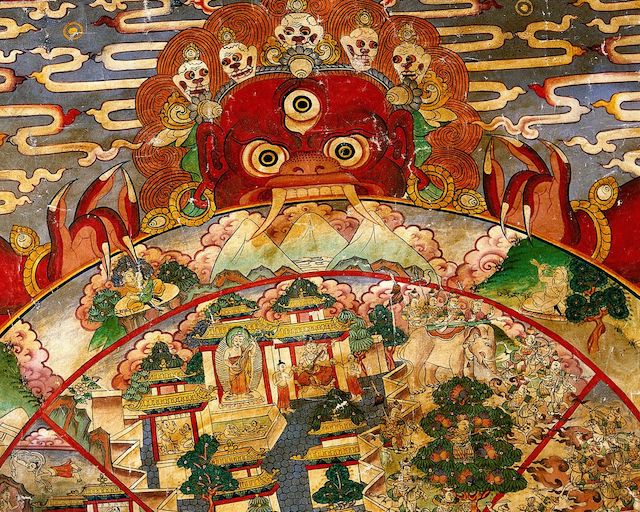
Questioning things is something that we tend to do quite well as small children. My captors at Kindergarten faced a difficult time with me each morning as I refused to remove my hat and coat for an entire term.
“But why?” I would ask, clinging onto my sleeves. “I like wearing them.” You can be sure that decades later, I received my karmic comeuppance dealing with three equally feisty sons—a fact that is a slight comfort to my long-suffering mother.
And yet after a while, inured to the constant scholastic and parental requirements to conform, we tend to curb our natural curiosity about the colossal weirdness of our existence. Instead of seeing the world—really seeing it—we begin to experience a veneer of mundanity over everything. For me, that was utterly depressing: the unbearable certainty of one’s life trajectory into a chosen career, having to earn money, and in a far off place around the age of 40—becoming wrinkly and dying.
Well, screw that.
So for those who are not quite dead yet, how can we wake ourselves up from this awful dullness, this despicable lie that masquerades as the world within and around us?
Believe me, a lot of people are already dead. The walking dead. Immersed in the quagmire of normality; caught in the marshy swamps of obligation and duty; dazzled by the baubles of entertainment. You can see it in their eyes. I see it in small children occasionally. It distresses me, for to be human is such a colossal opportunity.
I once asked my qigong teacher Yuan Tze, “What is the ultimate purpose of being born so blind to our true nature and potential?” The wisest living man that I know smiled and uttered one word: “Opportunity.” In Mandarin, the character for adversity and challenge also means opportunity. And so it is. The ultimate online gaming system: Life.
We get dropped into the game with a semblance of remembering in our childhood—and gradually we forget. If we didn’t forget, if we knew that we were heavenly beings having an earthly experience, then it wouldn’t be at all satisfying. To play the game we have to fully engage with the game, gluing the virtual reality helmet to our heads and assuming it to be an integral part of us.
But the very challenge is to become lucid. Like those who are able to “wake up” in their dreams—and there are a number of learned tactics to do so—we too can arouse ourselves to deeper consciousness in our waking life.
One powerful way to do that is to ponder the temporary nature of our bodily existence—playing the role of this particular persona. When we truly know that this is it, obsessing about small things like buying a new fridge or the latest phone becomes a bit silly. Rushing around doing a job that we hate or living with people we don’t love any more or even being in a bad mood—well, it’s all given a new light when we feel our death shadowing us.
I love this quote from Don Juan in Carlos Castenada’s masterpiece Journey To Ixtlan.
“Think of your death now,” Don Juan said suddenly. “It is at arm’s length. It may tap you any moment, so really you have no time for crappy thoughts and moods. None of us have time for that.”
Far from being a morbid influence on our lives, pondering our own death is a supremely helpful “smelling salt” to rouse us from the fainting swoon of complacency that we all fall into at times.
Go and see a dead body if you get the chance. It’s the ultimate wake-up call. And keep asking why? Why am I here? Who am I? And why the hell do I worry about anything inconsequential any more?
We’re all going to die. That’s the biggest certainty that we can be sure of. The rest of it, well, I think it’s up to us. If we make a good effort to reach a certain level of mastery in this lifetime, then we will have done well.
~
Author: Clare F. Halford
Image: Wikicommons
Editor: Travis May








Read 0 comments and reply